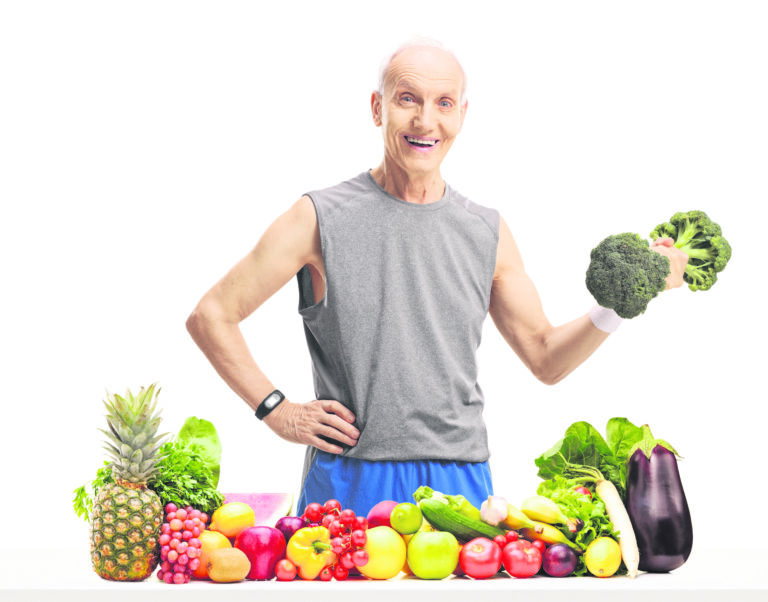By Bill Storie
There is both an Art and a Science to aging well.
The scientific part is basically good medical care. Regular check-ups with your GP and, as necessary, specialists (under the control of your GP). In today’s medical world there are so many tests and types of quality information to be used by your GP. Hopefully the GP can explain the results fully and easily. There is no requirement to be a health expert certainly but in today’s online world, the advent of “Dr. Google” can be a hindrance and a benefit.
Every GP will tell you that online searching based on your self-determined conditions and feelings can be dangerous. There is no advantage to self-determination. That is not good. Get the expert’s advice.
On the other hand, if you do want to have more details about your situation as determined by your GP, then searching can be useful to explain more treatment or expectations. Knowledge is a good thing – but only look at reputable websites – and avoid sites that are selling the best product for “xxxx”. Their so-called information is totally commercially driven. Pinch of salt.
So, the scientific elements of aging well are widely documented, and should be based on your professional advice and treatments.
The Art element is a little more complex.
Perhaps instead of using the word “art” we should be using the expression “psychological effect”. While the scientific advice is generally based on fact, the application of the advice is very personal, and one person can follow the advice easily and fully, while another person can sometimes have a “take it or leave it” attitude. Maybe they start the first week, then they fall away. The science hasn’t changed since last week but their adherence to it may have dwindled.
The aging process is a mixture of many issues – financial, home life, hobbies, friendships, social media etc., so to only adhere to certain aspects of getting older and ignore others may be a problem.
On the health side of things, taking care of yourself – the wellness factor – is critical. Nutrition and exercise are probably the key ingredients of a healthy lifestyle.
Exercise is not only important but can be fun. Going to the local gym is a great option but not for everyone. But if you do go to the gym, exercise gently but regularly. For years we were told that aerobic exercise (treadmill, rowing machine, stationary bike) was the primary function. It still is of course but some anaerobic exercise has become increasingly advised. Lifting weights for example is not for everyone but buy a couple of small barbells (maybe 5 or 10 pounds each) and sit in a chair and lift them one arm at a time for 5-10 minutes. Every day will make a big difference to muscle tone and body structure.
Go for a nice walk in the neighborhood – or drive to the local park and smell the flowers as you meander. Not a fast pace but make the effort. Maybe 30 minutes two or three times each week. Enjoy the fresh air and engage in deep breathing (fill the lungs, hold, release).
This exercise business sounds like a scientific measurement issue which in some ways it is – but the biggest obstacle to overcome and get it done is in the mind. Your mind. No point in talking about starting “next week” – the proper mindset must make you get up and go now. That is where your inner drive kicks in.
Nutrition is the other big one.
To the best of your abilities – availability and cost – eating fresh food, especially vegetables is crucial. If it means you visit the grocery store several times every week to get fresh produce, then so be it. That once-a-week trip to the supermarket may be more convenient in your busy schedule but getting fresh produce every other day will make a huge difference to your eating habits.
Most of us are obsessed by convenience foods – in tins – and usually full of sugar or sodium. Some tinned goods are fine but be careful about the ingredients. Perhaps you have a little more time than when you were working full-time, so spend time in the supermarket and look at every tin or bag of food – fresh, frozen, cooked, and from the butcher.
Cooking in olive oil or red wine vinegar (it’s not alcoholic) or plain salted butter is preferred. No need to deep-fry food to get taste and flavor. If you do crave that kind of taste, then perhaps you should change the food you eat. Plain, simple cooking can be a pleasure to eat – and healthier. Junk food should be banned from your house.
Other aspects of aging well include being at peace with yourself and family. Don’t carry the burden of poor relationships too far or too often. The psychological impact of things “on your mind” over time, can be debilitating.
As we age, the sleep factor also becomes more of a problem. Getting eight hours every night is a great idea – if only we could get it. Sleeping medications are fine if prescribed by your GP – and the occasional use of such pills will be fine – just don’t get addicted. If you need a nap in the afternoon because you didn’t sleep well the night before – go for it – unless you have a full-time job where you need to make time. A thirty-minute nap is more than enough.
The big secret to aging well is simple: Look after yourself – no-one else will.
Do everything in moderation but do it. Don’t chicken out. Have a regular schedule and stick to it. Some days you’ll feel great, some days rotten – but every day is a day that has been given to you – treat it well.

